I was never the sporty type or the type to do any physical activity at all, so I never thought much about what I ate or how it affected my body. When I started my summer job taking kids out into Ontario Provincial Parks for camping trips, I realized that I couldn’t keep up my diet of cookies and KD. I have by no means cut junk food from my diet and I wouldn’t consider myself a healthy eater, but camping has taught me to watch what I put in my body because feeling good is the most important thing.
For the past two years, I’ve spent my July and August portaging and paddling practically every day, which is more exercise than the sitting on the couch I do during the school year. When I went on these camping trips as a camper I would indulge in everything my staff cooked for me from mac ‘n cheese to smartie pancakes, because it was fresh off the campfire and I was hungry from a long day’s work. But as a staff, these trips are far more physically demanding and I realized I couldn’t eat like the kids anymore.
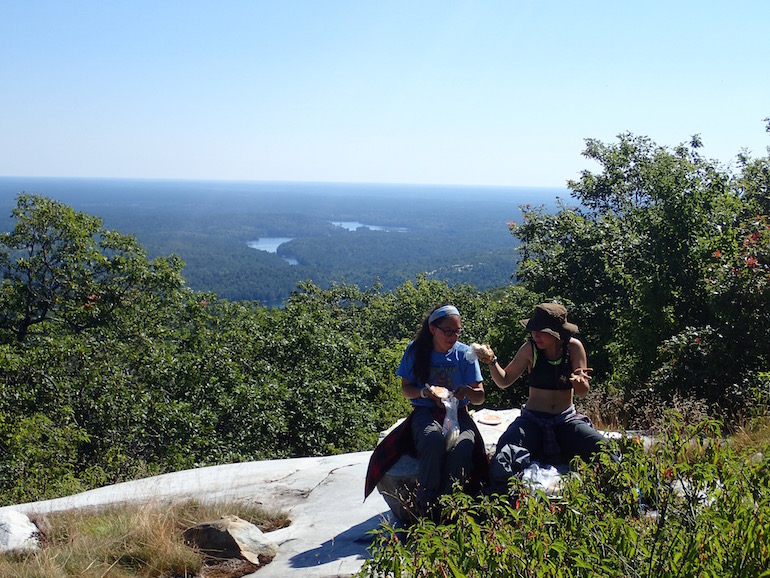
Photo courtesy of Josh Weiman
I first noticed the difference in my first year as a staff when I ate some cheesy pizzas for lunch. After scarfing down a few, it was time to pick up my canoe again and portage. My stomach was in knots from the cheese and I had zero energy. I’ve never had a sensitive stomach but it actually gets super sensitive when I switch environments quickly. I went from my mom’s home cooked salmon to camp food to trip food in a couple weeks and my stomach couldn’t keep up.
I also went from couch lounging to portaging real fast and wasn’t aware that the more exercise you do, the less hungry you are. I assumed it would be the opposite and my eyes are definitely bigger than my stomach. So, when it was time to break for food I thought I was starving and would start eating really fast. I got full a lot faster but didn’t take enough time to digest so I didn’t realize. This resulted in me being bloated and tired the rest of the day. There’s nothing worse than having to exercise when all you wanna do is slip into a nice food coma.
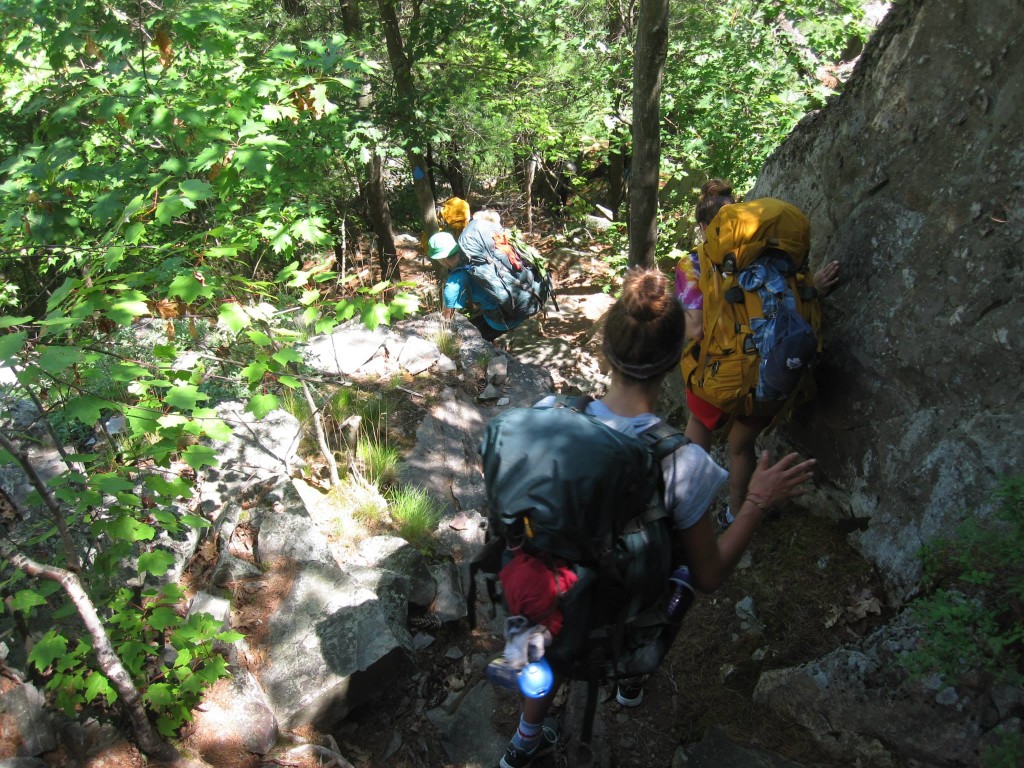
Photo courtesy of Jacqueline Lavergne
Even the things that seemed healthy ended up making me feel like crap. I obviously loaded up on Clif Bars in my first year thinking they were the perfect on-the-go breakfast that would give me tons of energy for the day. Unfortunately, Clif Bars are kind of just candy bars in disguise and because of my sensitive stomach, all that sugar made me feel gross and I could barely eat half of it. Not all energy bars are created equally. I tried out some other brands and I found that the more natural the bar, the better I felt, even if it wasn’t advertised as a hiking bar.
For lunch and dinner, I learned to cut down on fatty meats like bacon and sausage. I’ve never been a huge meat eater but bacon mac ‘n cheese is one of my favorite meals on trip. It was hard for me to let go of those nostalgic dishes, especially after such a long and tiring day, but once I did I felt a million times better.
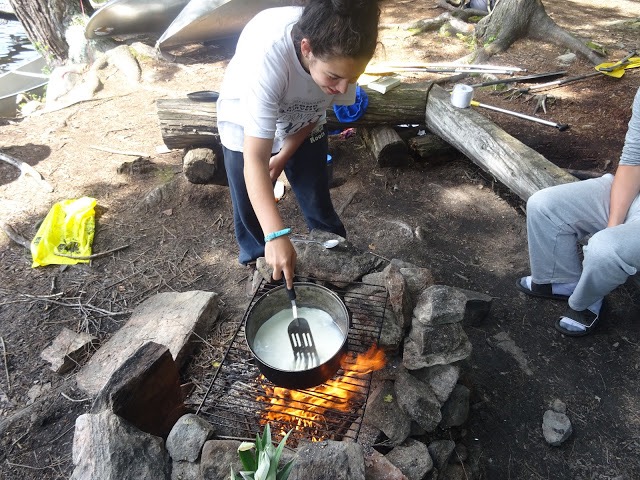
Photo courtesy of Ben Shiff
I’m by no means a vegetarian, but many of my co-staff are so we always have loads of veggie burgers readily available. I started substituting those burgers into my lunches and dinners instead of meat or just to add more substance to my meals. They’re surprisingly delicious and they kept me much more full than the pizzas or grilled cheese.
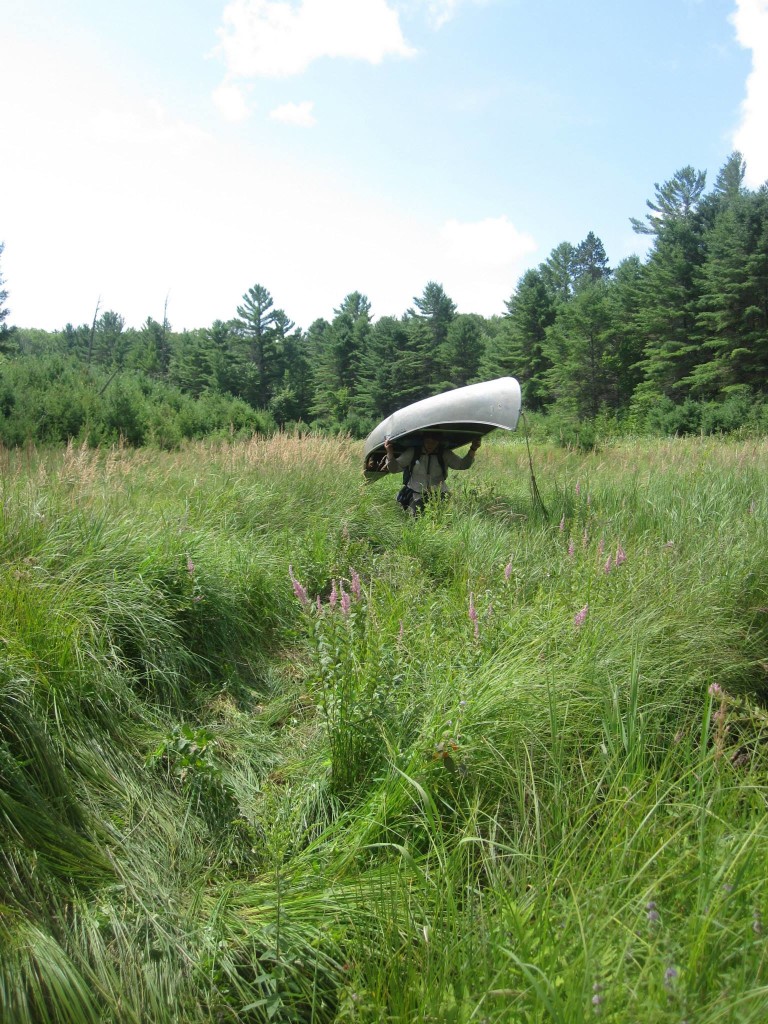
Photo courtesy of Jacqueline Lavergne
The kids still love the classic meals, but I always modify them a little for myself to make sure I’m taking care of my own body. It’s not about weight loss or body image, eating this way helps me feel good and do my job better. And I probably don’t have to tell you how uncomfortable it is to start having stomach problems in the middle of the woods. Eating a little cleaner is a worth the sacrifice if it means I won’t be squatting in a bush all night.
That doesn’t mean I don’t indulge in the campfire classics. I’m not gonna pass up those S’mores. When the day’s work is done, I feel better about having those treats because I know I don’t need to carry a canoe until morning. That being said, a bad night’s sleep can ruin the next day so I’m not going to stuff my face before bed.

Photo by Devon Flinn
Every year I learn a little more and this past year I learned that it’s not enough just to take care of my body on the camping trip. I also have to watch what I put in my body on my days off. Usually in between camping trips I’ll snack like crazy because I don’t have to do any physical activity, but like I said, my body responds negatively to sudden changes in diet. Since there’s usually just one day in between trips, I rotate between a healthy diet and a crappy one quite often, which makes my stomach hate me.
Possibly the most important lesson I learned wasn’t about food at all, it was about water. I had the mentality in my first year that I didn’t need water and I didn’t have time to stop and drink water. Bad decision. I was constantly dehydrated and felt woozy and nauseous a lot. Paddling while feeling the constant need to vomit is one of the worst feelings I’ve ever experienced. I was setting a terrible example for the kids and making my days way harder than they had to be.
Now I stop to get water as often as I can even when I don’t think I need it, because if you’re thirsty, you’re already dehydrated. I have to pull over my canoe constantly and stop portages to pee but it’s worth it to be able to wake up without a splitting headache.
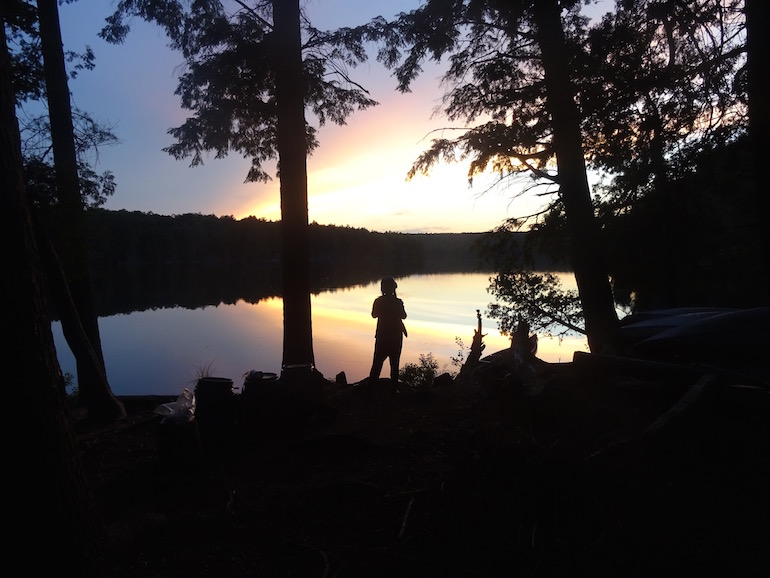
Photo courtesy of Ben Shiff
I try to apply these lessons to my everyday life in the city because there’s no harm in feeling good all the time. I now know that my body functions better with less of some foods and more of others. That’s not to say I cut them out, but I know how much is too much for my stomach to handle. To use the most cliché line of all time: it’s not a diet it’s a lifestyle. And even though I hate myself for saying it, it’s true. I don’t tell myself what I can and can’t eat and stick to a set of rules, I just try a little harder to avoid certain foods that I know will end up hurting me in the long run. And honestly, it’s made all the difference.


